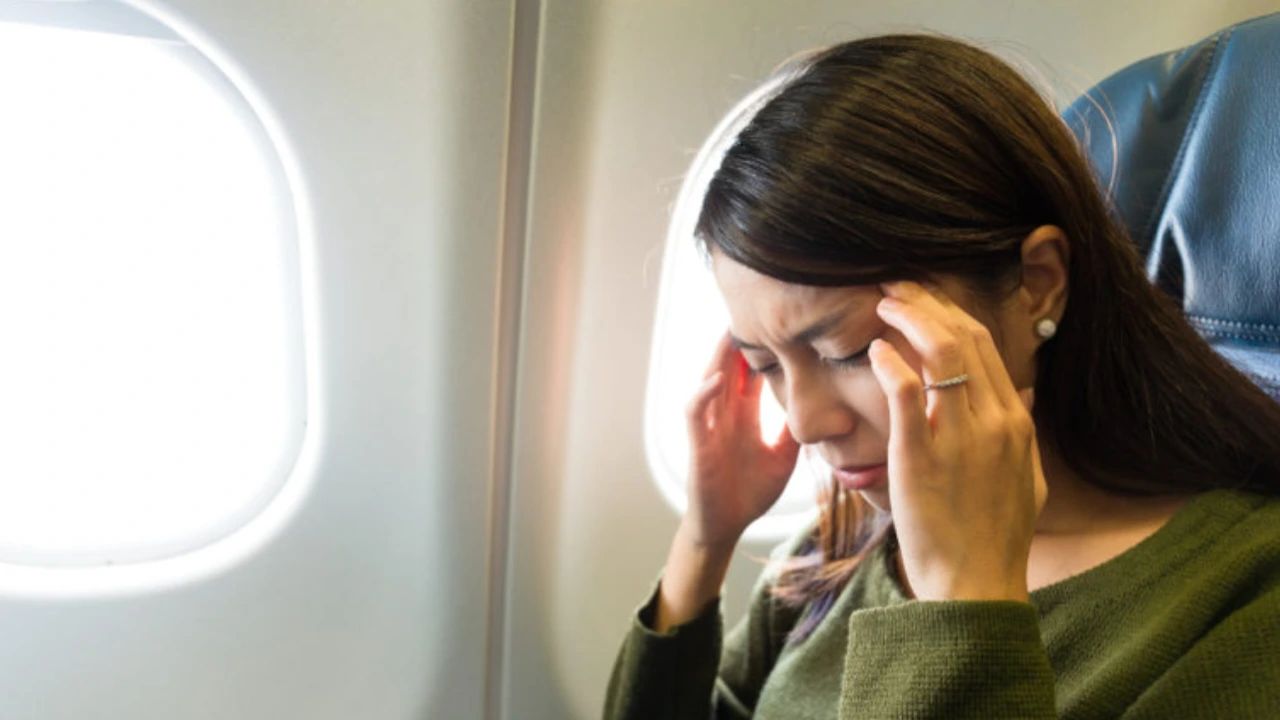Aerophobia is an excessive fear of traveling by plane. Aerophobia sufferers can experience nausea, shaking, and panic attacks while flying or even before the plane takes off.
Aerophobia sufferers can feel afraid of various things that happen in flight, such as the process of taking off, landing, or when turbulence occurs. The fear that arises when in a plane can also come from other phobias, such as a phobia of heights or confined spaces.
For people who rarely travel by plane, aerophobia may not have a big impact on their lives. However, at some point, this condition can cause disturbances that can interfere with their social life or productivity.
Causes of Aerophobia
The causes of aerophobia can vary from one sufferer to another. This depends on physical health, mental health, and social factors. Some factors that can cause aerophobia are:
- Experiencing a traumatic event during a flight
- Reading news about plane crash
- Having a family member who also suffers from aerophobia
- Having memories of bad events involving flying, for example flying on a plane to visit the funeral of a loved one
- Feeling afraid of meeting other passengers on the plane due to social phobia
- Have a phobia of heights (acrophobia)
- Suffering from a phobia of confined spaces (claustrophobia)
- Having an excessive fear of germs (mysophobia)
Meanwhile, the emergence of fear and anxiety during flights can be triggered by the following things:
- Vibrations during takeoff, landing and turbulence
- Bad weather
- Startled by hearing someone sneeze or cough on the plane
- Flight schedule delays
In severe cases, excessive fear and anxiety can arise before boarding a plane, for example when receiving information that the sufferer must board a plane to attend a certain event.
Symptoms of Aerophobia
People with aerophobia will make efforts to avoid anything related to flying, such as:
- Avoiding work or events that require flying
- Forcing colleagues or family to use other modes of transportation
- Do not read news or watch films that discuss air travel.
- Obsessed with learning air travel safety procedures
When on a plane, aerophobia sufferers can experience panic attacks . Some symptoms of panic attacks that can arise are:
- Shiver
- Out of breath
- Feeling suffocated
- A cold sweat
- Nauseous
- Heart beats fast
- Can’t think straight
When to see a doctor
If you experience symptoms as mentioned above, you should consult a doctor . Proper treatment is needed to prevent more severe aerophobia conditions, such as disruption of work or social life due to avoiding traveling by plane.
Diagnosis of Aerophobia
A doctor may diagnose a patient with aerophobia if:
- Excessive fear of the thought of traveling by plane has persisted for 6 months or more.
- The tendency to make every effort not to travel by plane
- The fear experienced causes disruption to daily activities, social life, or work.
Aerophobia Treatment
Aerophobia treatment can be done through several methods below:
1. Cognitive behavioral therapy
Cognitive behavioral therapy can help patients recognize and change their thinking and behavior patterns related to air travel. In this therapy, the doctor will ask the patient to tell about their fears about air travel.
Next, the doctor will help the patient to change his/her thinking by providing an understanding that his/her fear is irrational.
2. Exposure therapy
Exposure therapy aims to help patients get used to air travel. For example, aerophobia sufferers will be given pictures or videos of the atmosphere when boarding a plane or invited to use virtual reality on the plane.
3. Relaxation techniques
The doctor will also teach aerophobia sufferers relaxation techniques to overcome anxiety or panic attacks that may occur. One of them is by breathing exercises or by closing your eyes and focusing your mind on calming things, such as music.
4. Medicines
Medication is intended to reduce anxiety that occurs before or during a patient’s flight. Doctors can prescribe benzodiazepines, such as alprazolam, diazepam, and lorazepam.
Complications of Aerophobia
Aerophobia can disrupt the sufferer’s social life and career if left untreated. Aerophobia sufferers can withdraw from their social environment because they realize that their fear can make things difficult for others. This makes them more susceptible to other mental disorders, such as depression or panic disorder .
Prevention of Aerophobia
Aerophobia is part of anxiety disorder. Therefore, aerophobia sufferers can reduce anxiety by:
- Avoiding things that can worsen anxiety, such as consuming caffeinated or alcoholic drinks.
- Don’t let stress build up
- Share your fears and anxieties with those closest to you
- Consult and have regular check-ups with a doctor or psychologist
- Living a healthy lifestyle, including a good diet and exercising regularly
To avoid negative thoughts and reduce fear when traveling by plane, you can do the following things:
- Read a book
- Listening to music
- Watching a relaxing movie
- Do relaxation techniques as soon as you sit down on the plane
References :
Çetin, et al. (2023). A Case of Posterior Reversible Encephalopathy Due to Takotsubo Cardiomyopathy Triggered by Aerophobia. Cureus, 15(6), pp. e40678.
Huppert, D., Wuehr, M., & Brandt, T. (2020). Acrophobia and Visual Height Intolerance: Advances in Epidemiology and Mechanisms. Journal of Neurology, 267(1), pp. 231–240.
Cleveland Clinic (2022). Aerophobia (Fear of Flying).
Mayo Clinic (2019). Cognitive Behavioral Therapy.
Patient Info (2022). How to Manage a Fear of Flying and Flying Anxiety.
Verywell Mind (2023). Managing Panic Attacks While Flying.
Verywell Mind (2020). Aerophobia: The Fear of Flying.
WebMD (2023). What to Know About Systematic Desensitization.
WebMD (2021). What to Do if You're Anxious About Flying.

